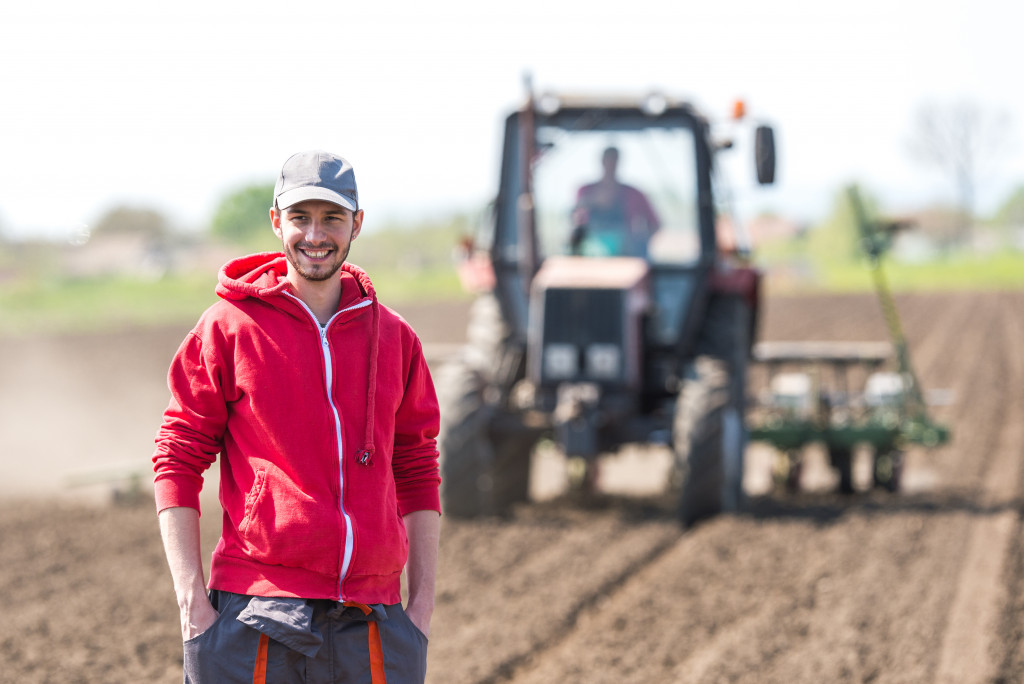Farming can be a gratifying and profitable business. In fact, 2022 data shows $346.2 billion in revenue in the global crop farming market alone. This makes it an appealing venture to many entrepreneurs.
However, before diving into such a business, some investments must be considered carefully. These will ensure the success of your venture and make sure you have a good return on your capital. Here is your guide toward choosing the significant investments before starting a farming business:
Land
Land acquisition is the most significant investment you will have to make when starting a farming business. The land will be where you cultivate your crops or livestock, so you will need to purchase one unless you plan on renting.
This investment can be costly, depending on the size of your operation and the location of your farm. In addition to the cost of buying land, other expenses associated with land ownership could include taxes, insurance premiums, repairs/maintenance costs, legal fees, or survey fees. But it doesn’t have to be complicated. You can seek financial aid from government subsidies or private sources to help support your land purchase.
It would also be best to consider any restrictions that may affect your ability to use your land as intended, such as zoning or environmental regulations. In doing so, you can ensure that you invest in a property that meets your needs. This will help protect your investment and prevent any legal issues down the road.
Equipment and Supplies
Another significant investment you should consider before starting your farming business is purchasing the necessary equipment and supplies. This will include anything from tractors and plows to storage containers, protective gear, or chemicals.
The cost of these items can quickly add up, so it is crucial to research and shop around for the best deals. You may be able to find used or second-hand equipment that can save you money. For instance, a tractor is a necessity and can cost up to $100,000 depending on the size and type. On the other hand, you can buy used tractors for sale at only half the price.
In addition, you may be able to find deals from local agricultural dealers and other suppliers that can help reduce the cost of your equipment and supplies. It is also a good idea to establish relationships with these suppliers as they can help you keep up with the latest farming trends and find the best products to suit your needs.
Labor
Unless you plan on doing all the work on your own, you will need to hire labor to operate a successful farming business. That means spending money on employee wages and insurance premiums.
The cost of labor will depend on the type of farm you are running, the number of employees, and their levels of experience. It is also essential to consider any government regulations on wages and benefits so that you are compliant with the law. Additionally, if you hire seasonal employees, you’ll need to consider how long they will stay employed by your farm and any associated costs, such as housing or transportation needs, during their employment period with you.
But with enough research and planning, you can find cost-effective ways to hire and manage labor. This includes partnering with local community organizations or educational institutions that provide workforce training programs. However, you might need to invest in training sessions and certification programs for your workers to ensure they are up-to-date on the latest farming practices.

Crops and Livestock
You will also need to invest in crops and livestock before starting your farming business. The type of crop or livestock you choose to raise will depend on your farm’s location, climate, soil quality, and other factors. It is essential to consider these elements when selecting crops or livestock to ensure you are investing in products that are well-suited to your property.
You will also need to purchase the necessary supplies and feed for your crops and livestock. This can include seeds, fertilizers, feed, and other items required to grow and raise what you have chosen. Again, this is an area where researching and shopping for the best deals can go a long way in saving you money. So, make sure you take the time to find the best suppliers.
Overall, these investments are necessary for starting up a profitable farming business. With careful research and planning, you can ensure that your assets are solid and will lead to success. This is the best way to ensure you get a great return on your capital and make the most of your farming venture.



